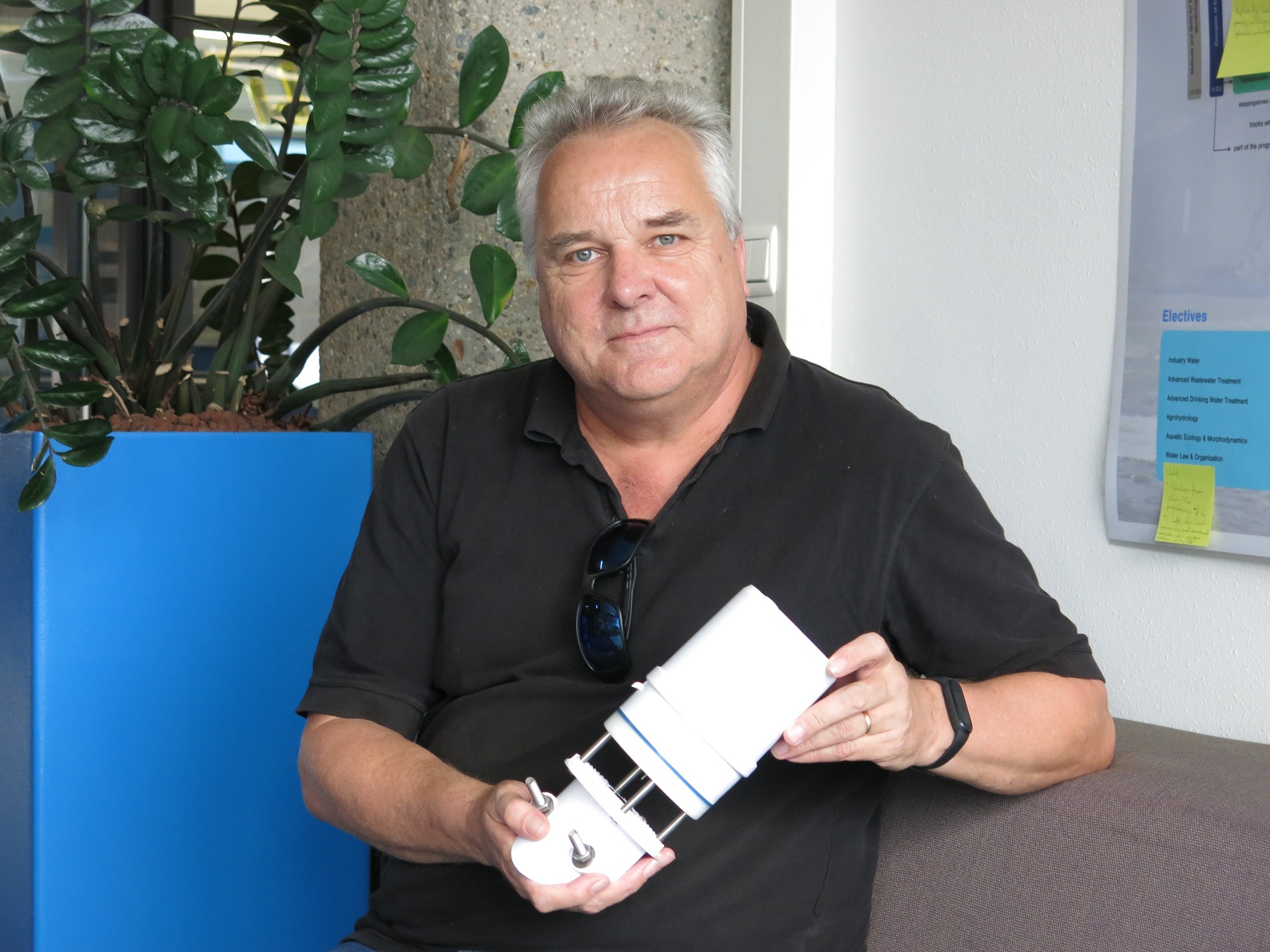Who are the people who study or work at TU Delft? We meet them in Humans of TU Delft. This time: Nick van de Giesen has recently been honoured for the impact of his work.
Nick van de Giesen pictured with an example of the equipment used to gather weather data. (Photo: Heather Montague)
English only
“I started working at TU Delft in 2004 and I am Professor of Water Resources Engineering in the Department of Water Management at the Faculty of Civil Engineering and Geosciences. Since 2015, I am also the chair of TU Delft Global Initiative. Prior to that, I did my own studies in Africa: a master’s in Guinea-Bissau, a PhD in Rwanda, and a post-doc in Côte d’Ivoire. I have also supervised over 20 students from sub-Saharan Africa, most of them at the PhD level. So I have been connected to Africa for more than 30 years now.
About 12 years ago, I was together with a colleague in the United States, Professor John Selker at Oregon State University. We were thinking about some interesting work we had done in Ghana and started thinking about what we could do to have some impact there. We thought, what are we good at and what is needed? My idea was about weather and climate data in Africa and it was at the time when smartphones became ubiquitous. We thought if they can make a phone for a few hundred dollars, we should also be able to make a weather station for a few hundred dollars.
Current and historic weather data is important for agricultural, climate monitoring, and many hydro-meteorological applications. We started the Trans-African Hydro-Meteorological Observatory (TAHMO), and about 10 years ago, we had the first memorandum of understanding with the Kenyan Meteorological Department. Then when IBM bought The Weather Company, there was some money in that transaction for social responsibility which provided funding for the first 300 stations.
‘The data are available for free for science and for the government’
We have been quite successful over the years with project acquisition and now we have about 640 stations in over 20 countries across sub-Saharan Africa. We are by far the largest provider of in situ scientific weather data. The data are available for free for science and for the government, and local meteorological agencies use them a lot. Around 90% of our stations are located at educational institutions. This is an advantage for us as there is some social and physical protection for the equipment which needs to be maintained. People at the schools can help clean the devices and at the same time we work to support their climate curriculum.
The ultimate goal for TAHMO is to make sure that the weather and climate in Africa is observed, and that the data flows so that it produces value in society. We want to empower sub-Saharan African communities in measuring, understanding and acting upon their local climate and believe the network needs to be locally owned and maintained. We don’t compete with the national met services; we work closely with them and we want to strengthen them because in the end we think that’s the best way of ensuring it will work.
The American Geophysical Union has something called the Ambassador Award and this year I have been granted one. It is a real honour, also because it comes with a fellowship and I am the first Dutch person to receive it. The award recognises scientific progress that has impacted society. It shows that scientific research in the Global South is not just about writing papers but that the link between science and societal impact is really direct. It is also about the network that I have built there, including many students. I really like working with students, watching them go somewhere and figuring things out. It’s really almost like detective work, puzzling things out. I also like figuring things out. I like to do science, measuring things that other people have never measured and understanding things that other people have not yet understood. I have had the pleasure of discovering many new scientific facts in Africa, always with students and African colleagues.”
Want to be featured in Humans of TU Delft? Or do you know someone with a good story to tell? Send us an e-mail at humansoftudelft@gmail.com
Heather Montague / Freelance writer



Comments are closed.